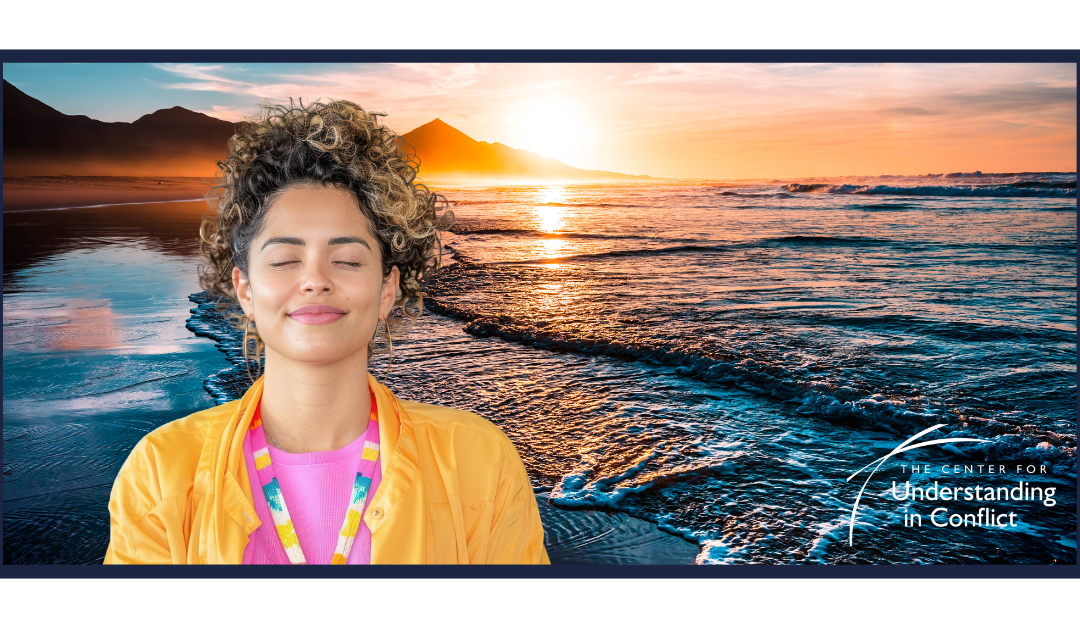In the field of conflict resolution, where the work is deeply human and often solitary, it is easy to become untethered from the very qualities that first drew us to it. We are trained to listen carefully, to remain grounded in difficult moments, to create a space where people can find their way through conflict not by being told what to do, but by discovering what matters most to them. Yet even as we offer that kind of space to others, we can forget to create it for ourselves.
Stepping away – whether by carving out time for daily reflection or retreating for days with fellow practitioners – is not a break from the work; it is part of the work. Without it, we risk becoming reactive, impatient, or discouraged. We can begin to operate on autopilot, our sensitivity dulled by fatigue, our curiosity replaced by judgment. The most subtle but corrosive shift is when we begin to lose sight of why we do this work in the first place.
This work asks a lot of us. It asks us to sit in the middle of strong emotion, to stay present when others withdraw or attack, to remain open in moments that trigger our own fears and judgments. It requires a level of awareness – of ourselves and of others – that cannot be sustained indefinitely without intentional renewal. Just as we invite people in conflict to slow down and explore what lies beneath their surface positions, we need to give ourselves that same invitation.
The understanding-based approach rests on the idea that conflict, when approached with openness and care, can be a vehicle for transformation. This is not just a belief about the parties we work with; it is a belief about ourselves. The depth of understanding we hope to cultivate between others begins with the understanding we cultivate in ourselves. We cannot expect to guide people through complexity if we have lost touch with our own clarity.
Retreats and mindful reflection create a pause in which we can listen inwardly, reconnect with our values, and remember the full scope of what is possible in this work. They offer space to notice where we have become caught – whether in subtle judgments of our clients, the pressure to perform, or even the exhaustion of caring. In that space, we can realign with the heart of our practice.
When we step back from the daily press of our work and join with other professionals who are committed to the same approach, something powerful happens. We remember that we are not alone. We see ourselves more clearly in the reflection of others’ experiences. We laugh, sometimes cry, and recognize the courage it takes to keep showing up in a world that often prefers quick fixes to deep understanding.
Working in isolation, many of us come to see conflict resolution as an act of endurance. But when we step into a circle with others who understand this path, it can feel more like a shared commitment to something profoundly hopeful: that human beings, given the right support and enough space, can find a way through even the most entrenched disagreements – not perfectly, not easily, but meaningfully.
Making time for that kind of reconnection is not selfish or indulgent. It is how we make our work sustainable. It is how we grow. And it is how we stay faithful to the deeper intention behind what we do – not just helping others through conflict, but helping them, and ourselves, find something true and grounding within it.
The invitation is simple but not easy: step back, take time, listen within, gather with others. Not as an escape from conflict, but as a way of remembering that it can be a place of insight, connection, and change. When we return – restored, grounded, reconnected – we bring something back with us that is essential: our presence. Not polished, not perfect, but real. And that presence, more than any tool or strategy, is what allows us to do this work in a way that matters.
